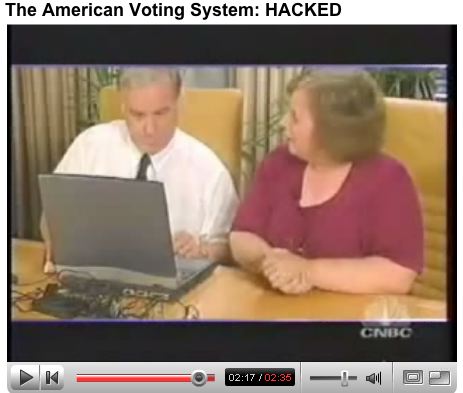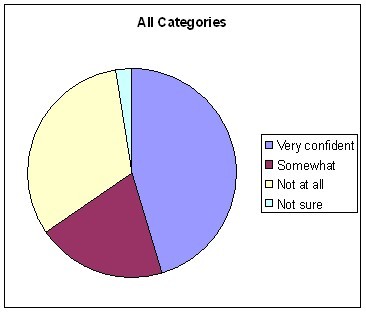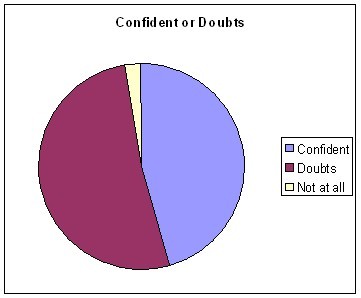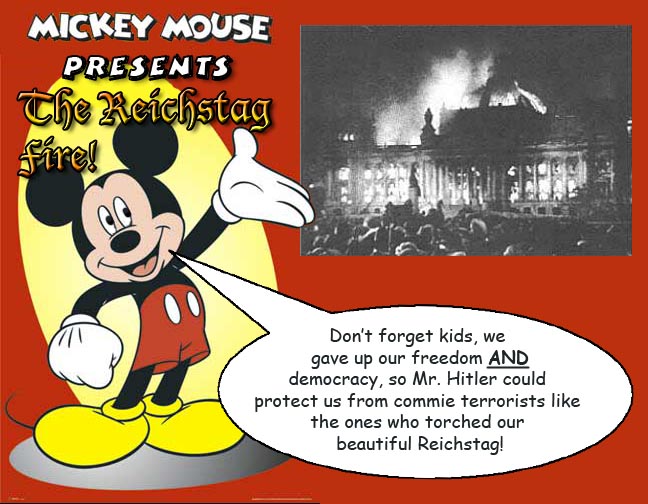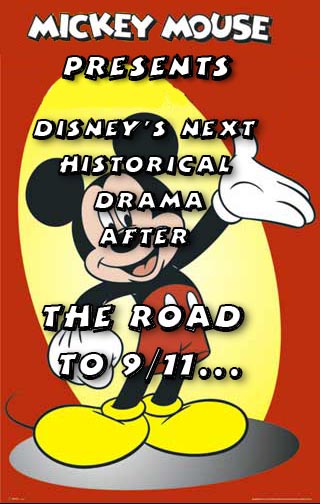Gore Vidal:
Hermann Goering:"Joseph Schumpeter ... in 1919, described ancient Rome in a way that sounds eerily like the United States in 2001: "There was no corner of the known world where some interest was not alleged to be in danger or under actual attack. If the interests were not Roman, they were those of Rome's allies; and if Rome had no allies, the allies would be invented . . . The fight was always invested with an aura of legality. Rome was always being attacked by evil-minded neighbours."' We have only outdone the Romans in turning metaphors such as the war on terrorism, or poverty, or Aids into actual wars on targets we appear, often, to pick at random in order to maintain turbulence in foreign lands."
http://www.tamilnation.org/intframe/iraq/v...
"Why, of course, the people don't want war," Goering shrugged. "Why would some poor slob on a farm want to risk his life in a war when the best that he can get out of it is to come back to his farm in one piece. Naturally, the common people don't want war; neither in Russia nor in England nor in America, nor for that matter in Germany. That is understood. But, after all, it is the leaders of the country who determine the policy and it is always a simple matter to drag the people along, whether it is a democracy or a fascist dictatorship or a Parliament or a Communist dictatorship...voice or no voice, the people can always be brought to the bidding of the leaders. That is easy. All you have to do is tell them they are being attacked and denounce the pacifists for lack of patriotism and exposing the country to danger. It works the same way in any country."When Hitler talked to his inner circle about his plans for war, his words could have come from the mouth of any world leader--but probably not publicly:
We were living in an age of economic empires in which the primitive urge to colonization was again manifesting itself; in the cases of Japan and Italy economic motives underlay the urge for expansion, and with Germany, too, economic need would supply the stimulus.
Adolf Hitler, Hossbach Memorandum
http://www.historyplace.com/worldwar2/time...
Oil is unique in that it is so strategic in nature. We are not talking about soapflakes or leisurewear here. Energy is truly fundamental to the world’s economy. The Gulf War was a reflection of that reality.
Governments and the national oil companies are obviously controlling about ninety per cent of the assets. Oil remains fundamentally a government business. While many regions of the world offer great oil opportunities, the Middle East with two thirds of the world’s oil and the lowest cost, is still where the prize ultimately lies, even though companies are anxious for greater access there, progress continues to be slow...
Dick Cheney, 1999 speech to at the Institute of Petroleum
http://www.energybulletin.net/559.html
Luckily for the oil industry, Cheney figured out a time-tested shortcut around that "slow" progress.
quote quotation gore vidal hermann goering iraq war dick cheney terrorism oil vice president president george w bush adolf hitler Hossbach Memorandum oilpeak oil petroleum nazi republican GOP conservative corruption occupation halliburton roman empire colonialism white mans burden professor smartass iraq democrat< propaganda corporation fascism democracy political opinion agent provocateur george w bush war on terror muslim public opinion opinion public relations foreign policy al qaeda false flag cointelpro northwoods terrorist worst president ever failure war criminal idiot retard closet gay karl rove puppet fascist chimp smartass comments resistance censored news rebel
